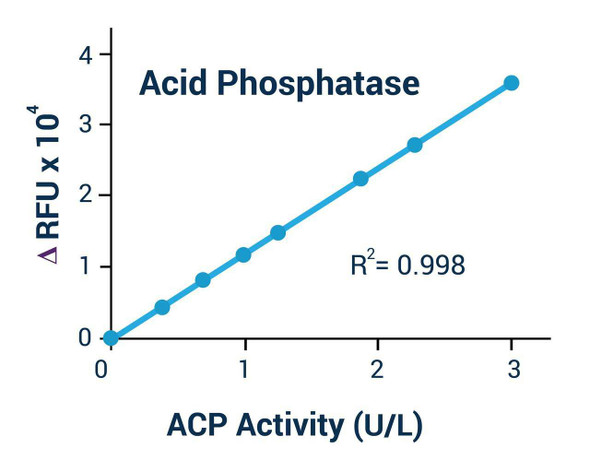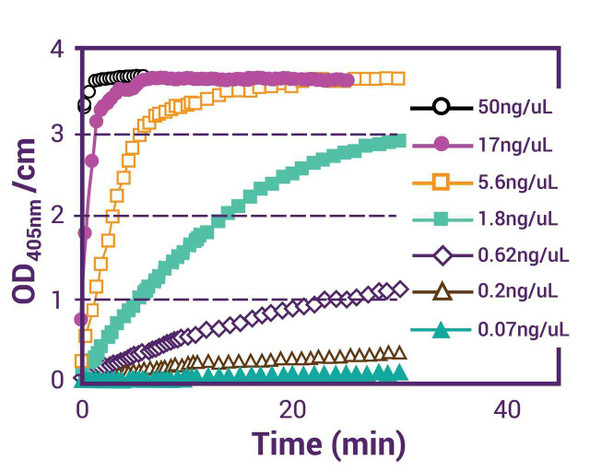

Acid Phosphatase Activity Assay Kit - Information
Assay Genie's non-radioactive, colorimetric acid phosphatase activity assay is based on the cleavage of p-nitrophenol from the synthetic substrate. p-Nitrophenol becomes intensely colored after addition of the stop reagent. The increase in absorbance at 405 nm after addition of the stop reagent is directly proportional to the enzyme activity.
Applications
Acid Phosphatase activity determination in biological samples (e.g. plasma, serum, cell lysate, tissue samples.)
Acid Phosphatase Activity Assay Kit - Key Features
- Fast and sensitive. Linear detection range (20 sample): 0.05 to 60 U/L for a 30 minute reaction.
- High-throughput. Homogeneous "mix-incubate-measure" type assay. Can be readily automated on HTS liquid handling systems for processing thousands of samples per day.
Acid Phosphatase Activity Assay Kit - Data Sheet | |
| Kit Includes | Assay Buffer: 12 mL pNPP Liquid: 280 uL Stop Reagent: 12 mL Standard: 1 mL |
| Kit Requires | Pipetting devices and accessories (e.g. multi-channel pipettor), clear flat-bottom 96-well plates (e.g. VWR cat# 82050- 760), centrifuge tubes and plate reader. |
| Method of Detection | OD405nm |
| Detection Limit | 0.05 U/L |
| Samples | Biological (e.g. serum) samples |
| Species | All |
| Protocol Length | 30 min |
| Size | 100 tests |
| Storage | Store the Standard and stop reagent at 4°C and all other reagents at -20°C. |
| Shelf Life | 6 months |
More Details
Acid Phosphatase (ACP) is an enzyme which catalyzes the cleavage of phosphate groups from other molecules during digestion. Acid phosphatase can be found in lysosomes and become active after fusing with endosomes, acidifying the pH and, thus, creating an optimal environment for ACP. ACP can also be found in bone, spleen, liver, kidney and blood. Serum levels can be used as a biomarker for prostatic carcinoma, although prostate-specific antigen (PSA) is more widely used.












